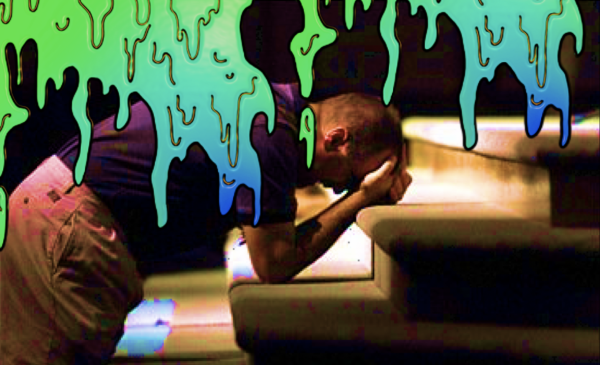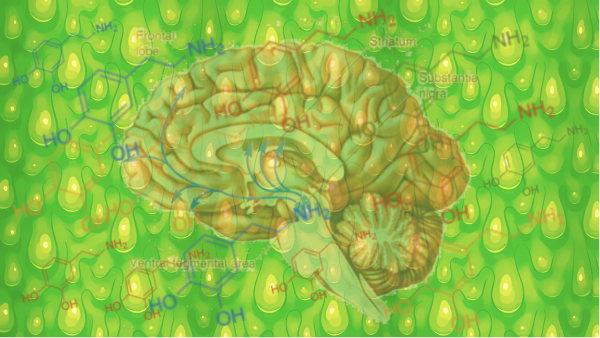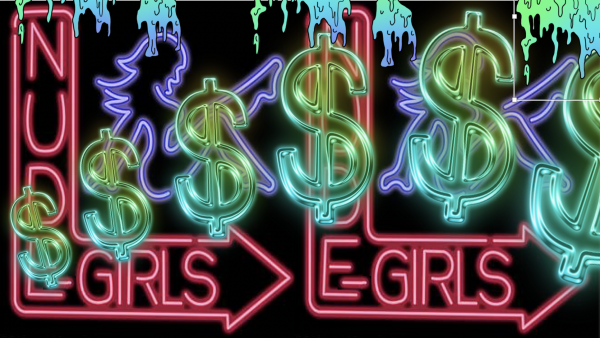Perversion can never be stripped of shame.
Porn is a Form of Worship

The American people have become acolytes of a religion of the flesh.
Translators of Rainer Maria Rilke’s Duino Elegies quibble over how to handle this line of the poem, written in Rilke’s native German: “der gedeuteten welt.” It either means “the interpreted world” or “the deciphered world.” When paired with its antecedent line, the couplet reads: “we’re not very securely at home / in the interpreted world.”
For contemporary purposes, it could be serviceable for us to rechristen the German word as “deciphered” in its English translation. Have the Silicon Valley transhumanists cracked the code for eternal youth quite yet, dusting off the playbook of their Soviet cosmist muses? Mystery is a modern adversary, and no matter how exciting the bobblehead creatives tell us the times are and will become, no matter if the cherry red Tesla in space does its hundredth orbit around the sun, we are bored with our deciphered world.
This is not boredom out of lack of things to do. It’s quite the opposite; a never-ending flow of stimuli (“entertainment”) that rarely spares us a moment to consider limits, place, or duty. A discomfort and alienation with the surrounding creation that has prompted a vast malaise.
Some evidence of our boredom, beyond the gradual dropping like flies of Facebook friends from high school overdosing on fentanyl, is porn. Perhaps we’re not dying deaths of despair from pornography use in quite the same way residents of Cabell County, West Virginia or my hometown in western Pennsylvania are of opioid overdoses. Drug death, of course, is more easily quantified: regression charts and all of the bells and whistles of CDC analytics can be used to study this pathology. As they should.
Pornography addiction, however, isn’t popularly considered a pathology. If anything, it’s integral to American life. In recent years, pornography sites have been more visited than social media sites like Instagram. Evidently, scrolling through an infinite loop of curated brunch photos and pixel-edited breast augmentations and rhinoplasty doesn’t take the edge off or get the brain juices flowing like faux incest pornography.
So, despite the attempted deciphering and reconfiguration of our world down to the microscopic level, we fail to recognize goodness and find ourselves in a metaphysical desert full of interchangeable things and addictions. As we’ve receded into spiritual sloth and boredom, weariness and cynicism, we’ve rejected mystery and wonder as trivial, precluding soulful delight and instead choosing onanism. Americans have become PornHub’s Pez dispensers, seeking out whatever will get the fried pleasure sensors to merely react: a feral, frenetic atavism that goes unchecked and unabated, because (they argue) that’s freedom.
Pope John Paul II’s Evangelium Vitae encyclical from 1995 delineates Church teaching on issues such as abortion and euthanasia and how they relate to creating and enforcing a culture of life—predictably, the less anodyne “culture of death” was easily dismissed as just another rant from another conservative moralist. Indeed, much of what the pope warned about was dismissed as hyperbolic, the secular public being complacent with the comfort of their lifestyles. Worship takes place in one form or another, whether worship of the holy or that of comfort and sensation. As Michael Hanby writes in his essay “The Culture of Death, The Ontology of Boredom, and the Resistance of Joy,” citing Evangelium Vitae, “the worship of sensation functions simultaneously as a distant reflection of the desire for God, and as an attempt to escape the Godless world we attempt to create through voluntaristic freedom.”
In these pursuits we reject God-given tasks in favor of fulfilling our desires, casting out beauty and mystery, especially in sex. The character of sex is bleached out when fertility is no longer a feature, and sex becomes a consumption product. This can seem quite provincial to believe or suggest to others.
Pornography is the ultimate obsession of a bored people looking for escape, relatively inexpensive and often only “costing” immaterial things. In search of novelty as boredom sets in, as it inevitably does, millions of people search for human origami porn, or for pool boy or pizza guy scripted porn to milk the last remaining morsel of imagination left before it’s on to the next thing. We like the idea of mystery and spontaneity, but only just a little, and only when it’s presented on a screen just long enough that it teases us.
Despite the affordability of flatscreen televisions, which think tankers and their ilk seem to believe is a metric of American prosperity, there certainly seems to be a bankruptcy of imagination: one can defend sex in its most objectifying form, but not in the sacred form.
If we can choose to be captivated by our carnal existence, we can choose to fully immerse ourselves in the mysteriously limiting bliss of the spirit. Such ethereal, indecipherable things seem to be perplexing us. Perhaps the truth is more simple: we fear to believe a gift so good could exist.
The American Mind presents a range of perspectives. Views are writers’ own and do not necessarily represent those of The Claremont Institute.
The American Mind is a publication of the Claremont Institute, a non-profit 501(c)(3) organization, dedicated to restoring the principles of the American Founding to their rightful, preeminent authority in our national life. Interested in supporting our work? Gifts to the Claremont Institute are tax-deductible.
Aristotle points the way to true virtue through free will.
The case of pornography.
How to find our way out from our culture-wide sex addiction.
Talk of the free market is laughable when it comes to porn.
Pornographic technology has turned sensory overload into sensory degradation.






